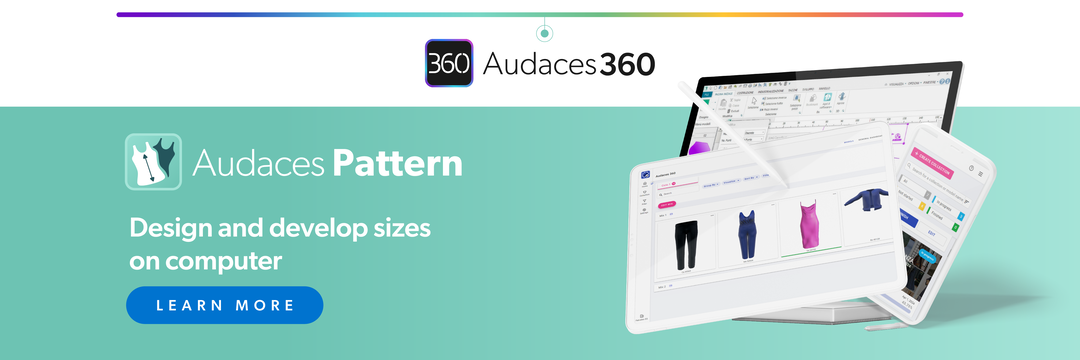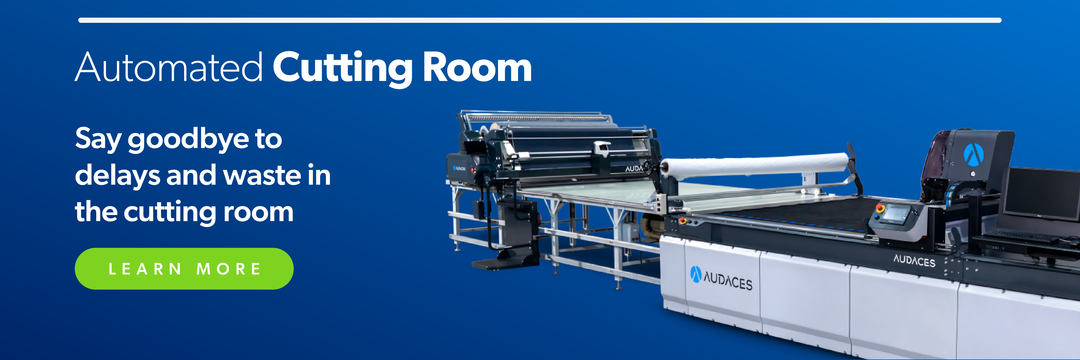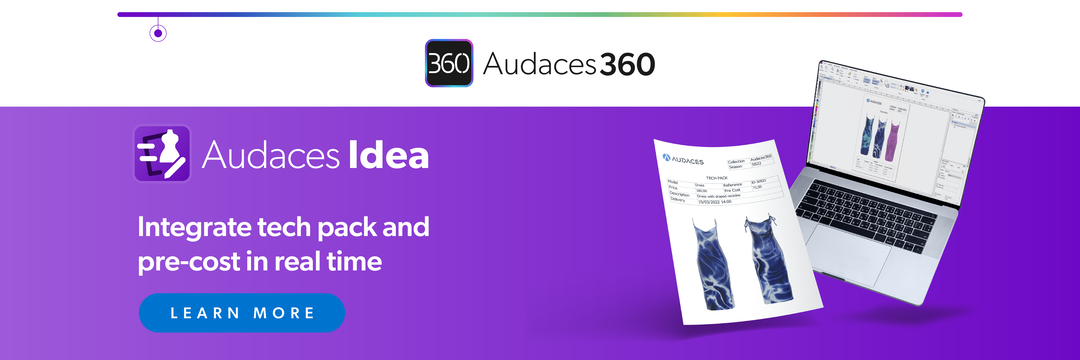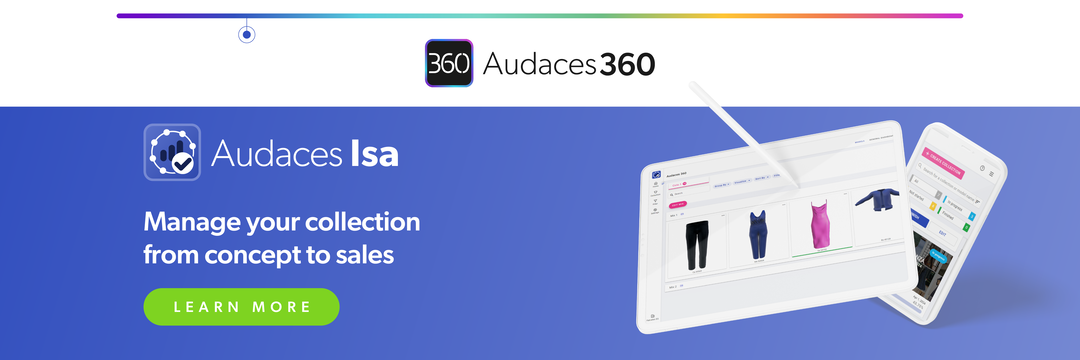Summary
- Finding the right clothing suppliers is one of the first steps for any fashion business.
- They play a big role in the quality, style, and price of your product offerings.
- Experience the future of fashion technology with Audaces360 solutions. Start your free trial today!
With so many clothing suppliers out there, it can be overwhelming to know where to start. You want to partner with the best. But how can you tell when you’ve found the right one?
In this guide, we’ll take you through five key steps to find the top suppliers for your fashion brand. Each step will empower you to make informed decisions and avoid potential pitfalls.
Whether you’re a small business or an established label, they save you time, money, and stress in the long run.
Enjoy your reading!
Sumário
Why is it important to count on reliable clothing suppliers?
They ensure you get high-quality products that meet your standards, which is essential for building a strong brand reputation.
When you trust your commercial partner, you can confidently promise your customers great products.
Working with dependable suppliers also keeps your business running smoothly. Late deliveries or poor-quality goods can harm your sales.
Reliable suppliers stick to schedules, helping you avoid delays and ensuring your stock is always ready.
Another key benefit is cost control. A trustworthy supplier will provide consistent prices, making it easier to plan and manage your budget.
Sudden price hikes or hidden fees can disrupt your business. However, with a reliable partner, you’ll know what to expect.
In the end, choosing reliable suppliers is an investment in your brand’s quality, efficiency, and reputation.
Learn more: How to perform effective supplier management in fashion
5 steps to find the best clothing suppliers
Choosing the right clothing suppliers is a big decision for fashion businesses. Here are five steps to help you find the best options:
1) Research companies thoroughly
Start by looking up each company’s background. Visit their website to see what they offer, and check if they specialize in the type of clothing you need.
Look for reviews and feedback from other brands that have worked with them. A supplier’s reputation can tell you a lot about their reliability and quality.
Don’t hesitate to ask suppliers for references. A reliable company should be happy to connect you with satisfied clients.
Talking to other brands that use their services can give you real insight into how they operate.
In your research, also check if the supplier has any relevant credential. Certifications show that the company meets certain industry standards, which can be a good sign of quality.
Learn more: Unlock insights in fashion market research and stand out
2) Check variety and quality

Make sure the supplier offers a wide range of products. This can be important if you plan to expand your line or offer different types of clothing.
Having a supplier that provides various styles, colors, and materials can simplify your process. It also shows they’re well-prepared to meet different needs.
Quality is equally essential. Look at sample products, if possible, to assess the materials, seams, and durability.
Even small details matter in fashion, as these add up to create a polished look for your brand. You want a supplier whose products reflect the quality your customers expect.
Ask about their quality control processes. Reliable suppliers should have a system to check each item before shipping.
If your goal is to work with custom clothing, consider the option of private labeling. This type of business allows you to have complete control over the designs.
Learn more: Weigh the 5 key benefits of white label vs private label
3) Understand lead times, delivery, and pricing
Knowing lead times is important for planning. You need clothing suppliers that can meet your deadlines, especially during peak seasons.
Ask about their typical production and delivery times, so you can avoid delays that could affect your sales.
Discuss shipping options and costs upfront. Some suppliers offer faster delivery but at a higher cost, while others may have affordable rates but slower times.
Choose what best suits your business needs, balancing speed with budget.
Pricing is a big factor in any supplier decision. Look for transparent pricing without hidden fees. Compare rates from a few clothing manufacturing companies to ensure you’re getting a fair deal.
Remember, the lowest price isn’t always the best if it sacrifices quality or reliability.
Learn more: Discover 4 essential points to thrive in clothing management
4) Assess customer service response
Good customer service is a strong indicator of a reliable partner.
Reach out to clothing suppliers with questions and see how quickly they respond. A prompt, clear response shows they value your business and are willing to help.
Communication should be professional and easy to understand. You want a supplier who is open to addressing concerns and doesn’t avoid tough questions.
Also, look for a dedicated contact person. Having a consistent point of contact can make a big difference in managing orders. They’ll understand your needs and provide updates on your orders.
Test their service by asking about product details, customization options, or sample requests. How they handle these questions will give you insight into their willingness to support your brand.
Learn more: What should you know about fashion product warranties?
5) Request product images
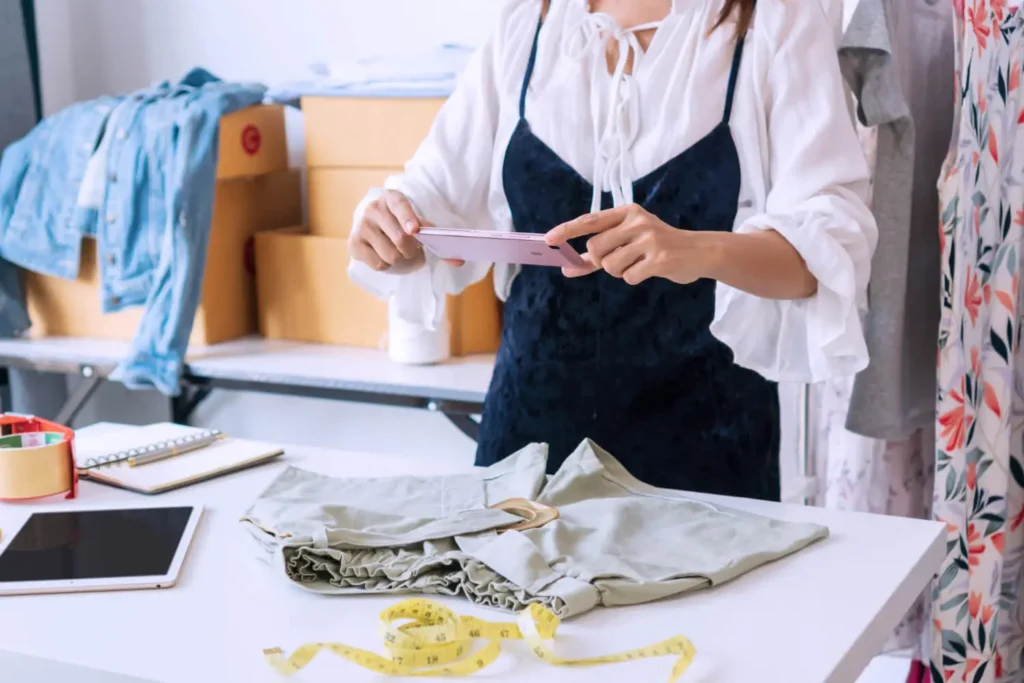
Images are essential when choosing a supplier, especially if you can’t visit them in person. Ask for clear, high-resolution photos of the products you’re interested in.
These images should show details like seams, fabric texture, and fit. They will help you evaluate quality before committing.
Compare images from different suppliers. This can highlight differences in quality and finish, making it easier to decide who aligns best with your brand.
If possible, ask for images of both the front and back of items, as well as close-ups of important details.
This ensures you have a full view of what you’ll be getting. Detailed visuals can save you from potential surprises once the products arrive.
Discover how to boost your online fashion business profits! Download our free e-book and learn how to reduce your return rates.
Where can you find clothing suppliers?
Finding the right clothing suppliers can take time, but knowing where to look makes the process easier.
These are the most popular sources to find good options:
Trade shows and events
Wholesale clothing trade shows and events are great places to find new partners.
They bring together suppliers from different places, making it easy to see a wide range of products in one place.
At these events, you can explore fabrics, styles, and trends up close, giving you a real feel for quality and variety.
Meeting suppliers face-to-face is a huge benefit. You can ask questions, get immediate answers, and build relationships with the people behind the products.
Trade shows also let you compare multiple clothing suppliers side by side, which can help you make a confident choice.
Many conventions focus on specific types of wholesale clothing. For example, some may highlight eco-friendly brands, while others focus on high-end fashion or children’s wear.
Attending the right event helps you find suppliers that align with your brand.
Learn more: What are the advantages of your clothing company attending a textile fair?
Representatives

Representatives are another way to connect with wholesale clothing suppliers. These agents work on behalf of suppliers, often handling orders, pricing, and product samples.
They are usually well-informed about their supplier’s offers and can provide you with detailed information about products.
By understanding your needs, they can recommend specific products and solutions. It makes the process more efficient, saving you time in your search.
Establishing a good relationship with a representative can lead to future perks. For example, early access to new collections or price breaks.
Referrals
Referrals from other business owners are a valuable resource when looking for clothing suppliers.
People who have firsthand experience with suppliers can share insights that are hard to find online. They can tell you about their experiences, quality issues, or how reliable the supplier is.
Hearing directly from someone who has worked with a supplier gives you a clearer idea of what to expect.
Plus, referred suppliers may offer better service because they know another client recommended them.
When reaching out, ask specific questions about the supplier’s reliability, quality, and delivery times.
Why rely on technological clothing suppliers?
Relying on technological clothing suppliers can give your brand a strong advantage. These suppliers use advanced tools and processes to improve efficiency, quality, and design.
Technology in clothing manufacturing often means faster production times. Automated machines and digital design tools help suppliers create garments more quickly and with fewer errors.
Moreover, these clothing suppliers can provide better communication tools. They might use apps or platforms that let you view products, track orders, and get quick responses.
This level of support keeps you in control of the process. It’s an easy way to manage your inventory and meet customer demands.
Be more assertive with your orders using Sizebay
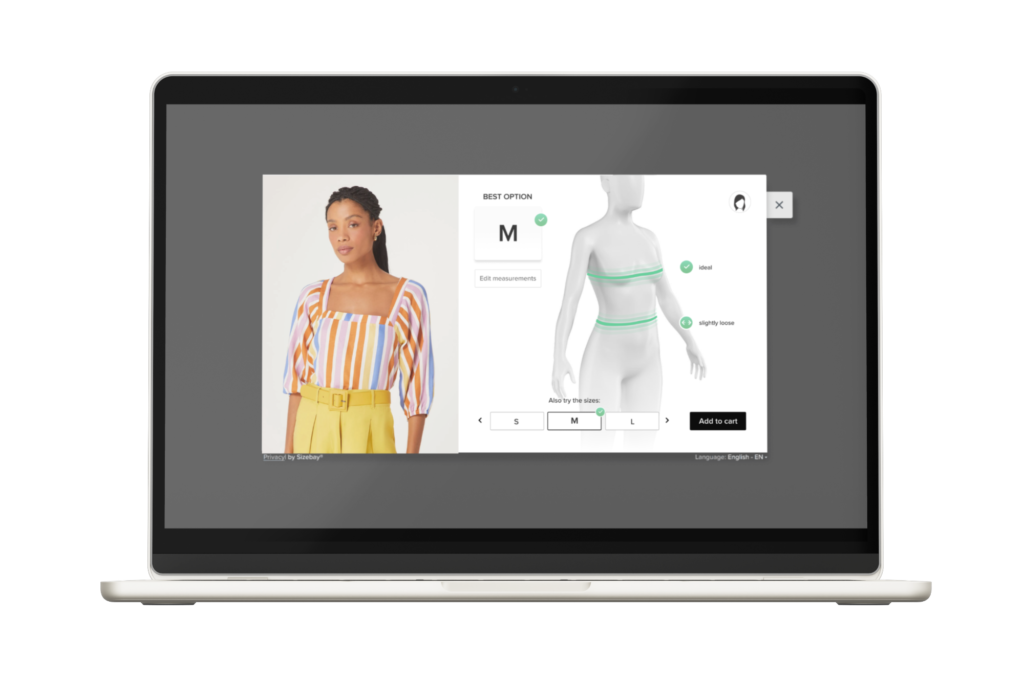
Sizebay offers innovative sizing solutions for e-commerce stores. It helps you enhance the shopping experience by addressing one of the most common challenges: finding the perfect fit.
Using cutting-edge technology, the solution provides a size and fit advisor that helps customers to find their size. It’s as simple as entering a few details to get the ideal recommendation.
In addition, you have access to reports on the most popular sizes. With this data, your purchases from clothing suppliers become much more accurate.
Ready to take your e-commerce to the next level? Discover Sizebay and schedule a demo now!
FAQ
They ensure you get high-quality products that meet your standards, which is essential for building a strong brand reputation.
Research companies thoroughly, check variety and quality, understand lead times, delivery, and pricing, assess customer service response, and request product images.
The most popular sources to find good options are trade shows and events, representatives, and referrals.


